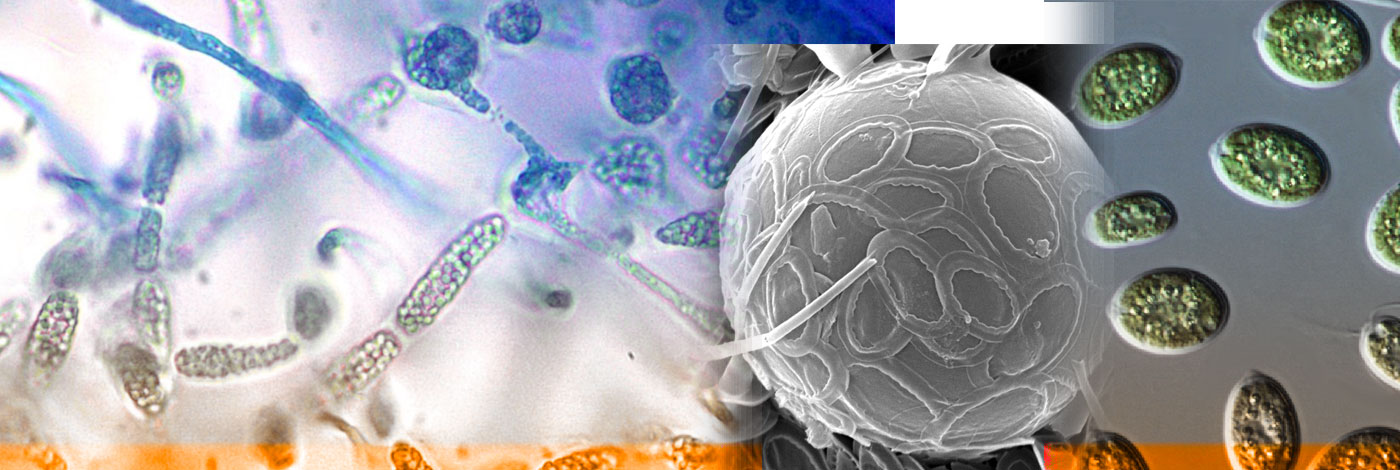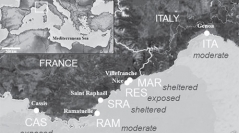

 Cryptogamie, Algologie
33 (2) - Pages 121-128
Cryptogamie, Algologie
33 (2) - Pages 121-128The tropical benthic dinoflagellate Ostreopsis cf. ovata recently occurred in the shallow coastal NW Mediterranean where blooms have caused health problems to humans. As part of the MediOs 2 project within the French research program Liteau III, we investigated the possible effects of this toxic microalga on the meiofauna (i.e. metazoans ranging from 40 μm to 1 mm in size) inhabiting the very common brown macroalga Halopteris scoparia. The macroalga was sampled in triplicate at 0.5 m depth in six stations along the French and Italian coasts on seven occasions in 2008. Ostreopsis bloomed in summer in three out of the six stations with abundances ranging from 2.5 to 6.6 105 cells g-1 macroalgal wet weight. Mean metazoan meiofauna densities ranged from 1274 to 9774 individuals g-1 macroalgal spin-wet weight. Statistical analyses revealed that changes in the community structure were associated with high abundances of Ostreopsis. The most affected organisms were the nauplii suggesting a negative impact on harpacticoid copepod reproduction.